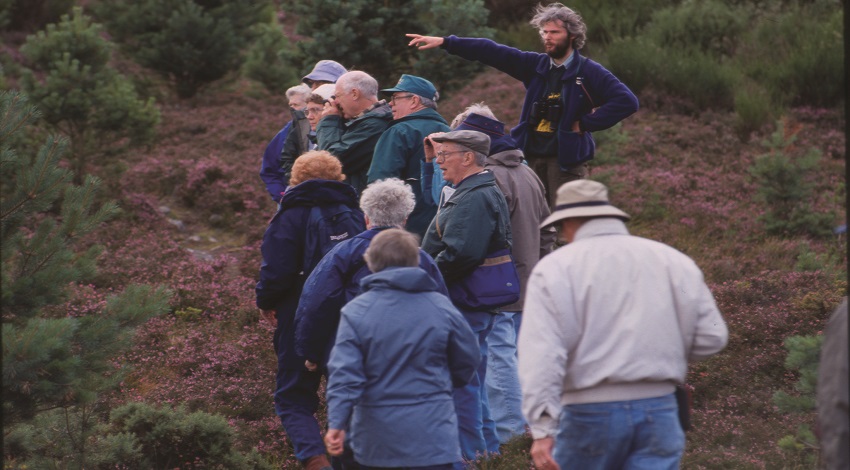The (Culture) Shock of the New
I deplaned after a sleepless and lengthy flight from Newark Liberty to Delhi International, changed money and left the airport. I was immediately hit with a wall of sights, sounds and smells. It was obvious that I was not in Kansas anymore. But then again, I explore largely because I don’t want to be in Kansas (no offense to Kansas, which I like).

I don’t think that I’m alone. Many of us roam to experience the new — people, cultures, sights. And yet, once we arrive at a destination that is so unlike our own, it can be a jolt. While I am aware that some love the jolt and love the differences, I’ve also witnessed people failing to launch because of how unfamiliar most everything is.
Even though I have been traveling for 50 years, it still sometimes takes a while for me to get up to speed in a new country. After my arrival in Delhi (for my sixth trip to India), I admit that I felt off balance. I was solo but would be meeting with other members of my group to start our journey.
One woman on this trip simply packed up and went home after a few days. And she was an experienced traveler, just unfamiliar with India. On the other hand, another person on that same trip began to open like a flower and talk to everyone, from people living in villages in the countryside to hotel staff to moms at the market with their children. And she danced her heart out every time she went to a performance in Rajasthan.
What makes someone feel culture shock while others do not? I have found that the confusion and anxiety of being in a very different environment can be a function of everything from age, experience and expectations to personality and even upbringing.
Here are some ways of diminishing the experience of culture shock:

• Exploring with a Group
While we all know people who set off on adventures either solo or with a buddy or buddies, there are those of us who feel more comfortable traveling with others. I’ve done it both ways, and I have discovered that the older I get, the more I enjoy having someone else help with arrangements. I appreciate relying on the knowledge of those who have more experience with the culture and the country.
One Road Scholar participant told me that she enjoyed wandering independently and directly interacting with locals. “But,” she writes, “Escorted trips are great when public transportation is limited, when your time is limited or when the sites you want to visit are scattered over a great distance.”
• Having an Experienced Leader
A friend once said to me that she likes having an expert along who knows things you can’t find in books. Such a person can translate languages, provide historical and cultural context and inspire participants to further comprehend the value of their experience. A leader can also arrange transport, provide safety and security information and offer directions for individual explorations.
• Mixing Solo with Independent Travel
Road Scholar Ruth G. of Carlsbad, Calif., writes, “I feel braver and more open to experiences in a country I’ve never been when I’m with a group and have a leader to facilitate. Then I feel comfortable to stay after and explore more on my own or go back independently.”
Some folks need to get their sea legs before venturing out on their own. They may arrange to stay longer post-trip when they feel more comfortable wandering solo. Others plan to arrive in a country a few days earlier so that they can relax, work through their jet lag or explore before the trip begins.
How to Prepare Yourself Before and During Your Trip:

• Read, Learn, Dream
Road Scholar alumna Margaret B. of Pueblo, Colo., writes that “learning as much as possible in advance about the place to be visited can help a lot with the adjustment, if you are worried. Road Scholar provided us with a reading list for my upcoming trip, and I'm reading all the books and then some, including watching Netflix shows in the original language with English subtitles.”
Read books from a recommended list or develop your own. You can find the latest news online or in print, and scour both nonfiction and fiction (I especially like novels written by people from the country I’m visiting). It also helps to learn at least some phrases in the language of the country you’re visiting. Shock often diminishes with information and understanding.
• Actively Engage
It’s very satisfying — not to mention fun — to talk to people whether or not one is part of a group. In my experience, people in every country are happy to chat if someone is friendly and interested.
• Let it Be
Margaret also finds that “the most helpful mindset is to expect nothing to be the way it is at home,” and “When in Rome, do as the Romans do.” Changes in latitude can inspire a change in attitude, but it may take a little time. Being open, less judgmental, patient and accepting may speed the process of feeling comfortable in another country.
• Staying Healthy on the Road
Being healthy in body and mind certainly helps in learning to appreciate being abroad. Take care with tap water, ice in drinks, unpeeled fruits and vegetables and suspicious street food. Few things are more of a shock to the system than falling ill abroad. That said, both having travel insurance and low medical prices abroad can help make bugs and accidents surmountable.
• Be Kind to Yourself
Complete knowledge is impossible to attain, even if one reads or studies for a lifetime. If you ask other people, you may discover that they also feel uncertain when they are on the road; a leap into the unknown always takes some getting used to. On my adventure, when folks felt they needed it, they would skip a full meal or take a morning off to de-stress. Slowing down with reading, sleeping, going for a walk or spending the morning at the hotel can do wonders. My morning at the pool at our hotel in Jodhpur snapped me right back for the afternoon’s trips.
Culture Shock May be Good for You
I believe that we all feel that our journeys transform us — that’s one of the reasons we travel. In fact, here are some ways in which I believe that culture shock might be good for us, even after we return:
• Overcoming culture shock may enable us to handle crises and life’s surprises in the future.
• Taking an active role in overcoming culture shock by reaching out may expand our circle of acquaintances and friends.
• Getting firsthand knowledge of a country and its culture adds more to our brains and hearts than we would ever know just from books, films or armchair travel.
• Experiencing another culture up close can permanently change the way we look at ourselves and our lives.
In fact, culture shock may be just the jolt one needs to recognize that, while our lives may not be the same, there is much that people all over the world have in common. As my friend Lewanda wrote after her India trip,
“Village children, hotel owners, strangers, locals on the street, tuk tuk riders looking in my bus window, all shared a brief moment of what seems like genuine acknowledgement. I felt seen and appreciated, and I hope they felt the same from me. I don’t know exactly what my perception of India was, but I was surprised to discover Indian people everywhere used the word Namaste to greet me. In my western yoga practice, I learned that Namaste means, ‘I have a spark of the divine in me and I see that same divine spark in you.’”
May we continue to engage with the world and to recognize the “spark” that we as humans share.
Barbara Winard has earned degrees in English literature, journalism and, later in life, gerontology. Although for the past 25 years she was a senior editor and writer of online encyclopedia articles for children. She began her solo travels in college, and after returning from a long trip to Asia, wandered off the street and was hired by the Asia Society in New York City to produce films and print materials for adults and children about Asian culture. She was also a producer and writer for New York City’s public television station, WNET/13. She lives in Historic New Castle, Delaware.
